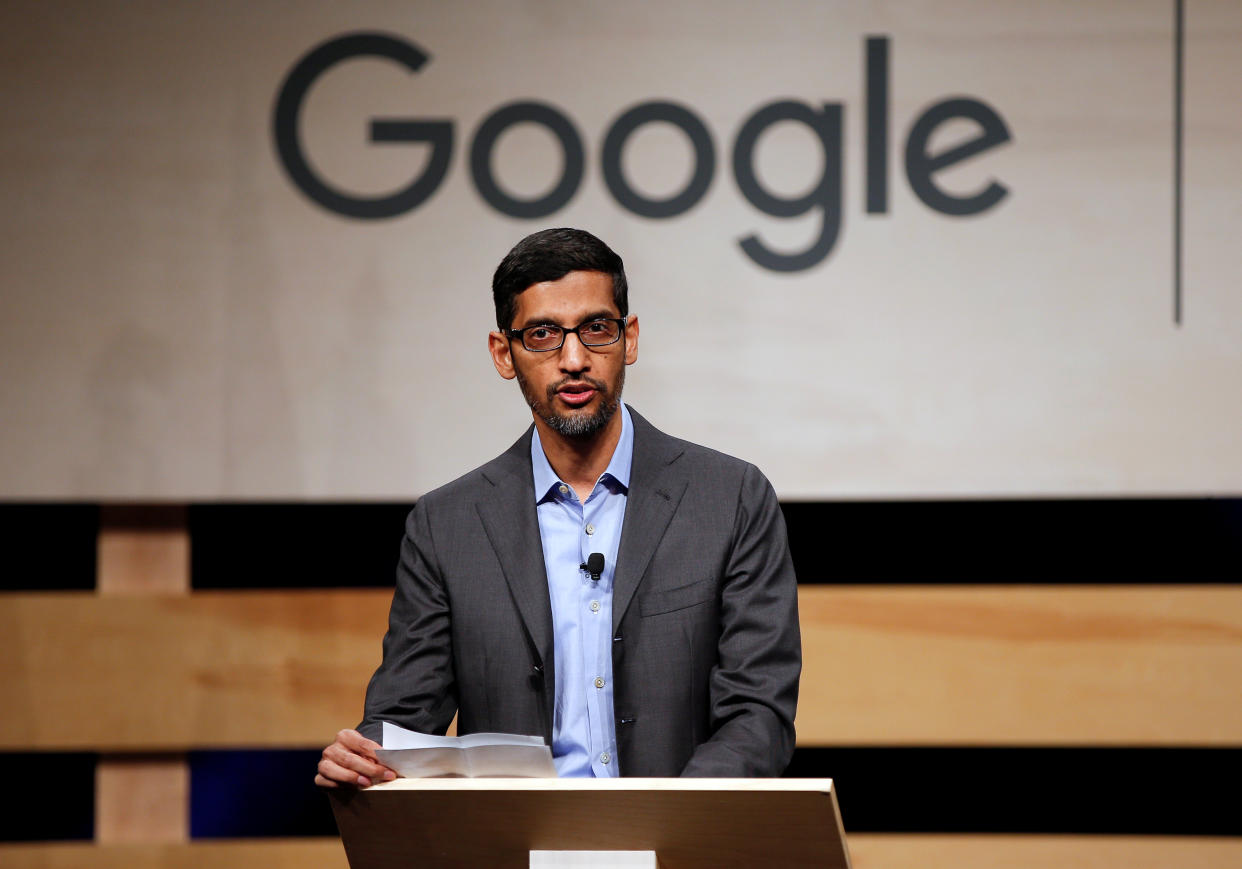AI is driving divergent paths for big tech stocks
Alphabet (GOOGL) and Microsoft (MSFT) stocks are headed in opposite directions after reporting quarterly earnings on Tuesday night.
On the surface, Microsoft's Intelligent Cloud surpassed Wall Street's expectations while Alphabet's cloud unit disappointed. But for investors, the focus remains on how artificial intelligence is driving growth within those businesses.
On the company's earnings call Alphabet CEO Sundar Pichai said the company is seeing "a lot of interest in AI" for the cloud segment, but revenue growth for the business area continued to slow down sequentially in Q3.
Meanwhile, at Microsoft, cloud revenue grew sequentially with management attributing 3 percentage points of growth directly to AI.
"Some of the improvements, we're making in Azure and even in Microsoft 365 gross margins, even in the core of the commercial cloud, it speaks to the pace at which we are delivering AI revenue with the increasing cost expense and capital investment ahead with the demand we see," Microsoft CFO Amy Hood told investors on an earnings call.
Both Microsoft and Google attributed increased capital expenditures to AI, but it was Microsoft's ability to directly attribute revenue to AI that excited Wall Street analysts.
"The trend is now your friend," wrote Evercore ISI's Kirk Materne. "AI-Powered Azure acceleration highlights strong [fiscal first quarter] and the AI story only gets stronger in [the calendar year] 2024."
Microsoft shares rose more than 4% on Wednesday morning while Alphabet declined more than 8%.
The stock reactions are another example of how the AI narrative has shifted over the course of 2023.
Announcements about AI integrations became the craze in the early part of the year, highlighted by Microsoft's splashy $10 billion investment in OpenAI. Eventually, Nvidia's (NVDA) talk of overwhelming demand for its AI-powered chips convinced investors that the technology could be a rising tide that lifts all of tech.
But since AI drove such a rally in stocks during June that macro strategists boosted their overall outlook on the S&P 500, investors are paying more attention to which companies are actually best positioned in AI.
And for executives, managing the mentions of the technology that many think could change every aspect of our lives has become a fine art.
If investors leave the call ecstatic about AI, they might come back disappointed next quarter when expectations are tempered and AI projections are pushed out into future years (see AMD shares falling 7% after earnings last quarter).
But a lack of explanation about how AI investment is contributing to revenues won’t cut it either.
The first question to Pichai on Alphabet's earnings call asked about search, a key battleground for Google in the AI arms race. A Morgan Stanley analyst asked Pichai for examples of "return on capital to Search when it comes to AI."
Pichai didn't provide specific numbers.
"We see AI as a foundational platform shift and are excited about the opportunities across our business," Pichai said. "It starts with search, and I've been pretty pleased with how the user feedback has been."

For now, Wall Street analysts aren't declaring any clear-cut losers from AI among the tech giants, and many still like the long-term trajectory for how Alphabet could leverage AI moving forward.
Jefferies analyst Brent Thill wrote in a research note that he and the Street may have "embedded too much AI benefit" into Alphabet estimates. But he notes Alphabet's increased spending indicates the management team likely has visibility into future cash flows that investors aren't aware of yet.
"While interest in generative AI is high, the industry's challenge in ramping AI infrastructure may be a factor in slowing recognized revs," Thill wrote in a research note Wednesday morning. "We expect better AI impact in '24."
Josh Schafer is a reporter for Yahoo Finance.
Click here for the latest stock market news and in-depth analysis, including events that move stocks
Read the latest financial and business news from Yahoo Finance
